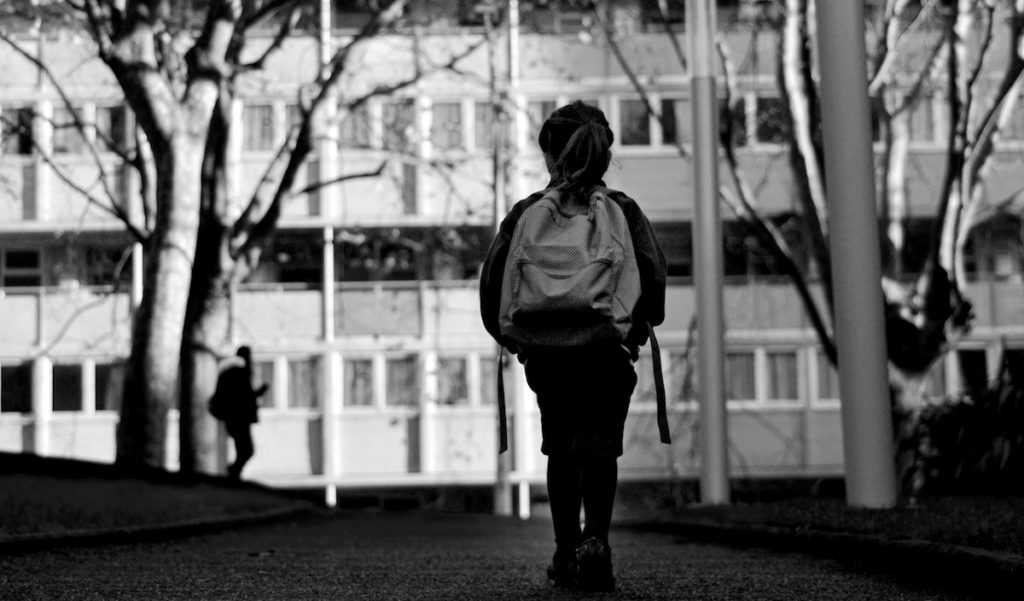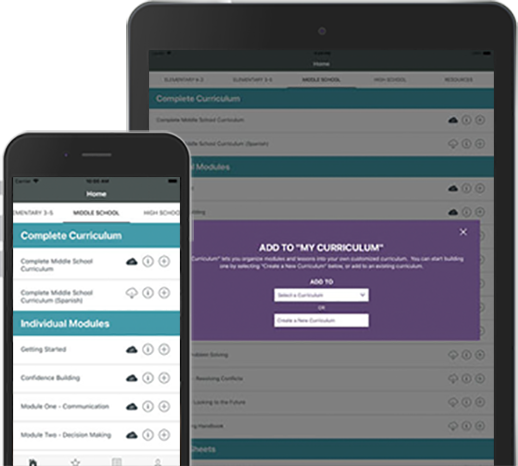A Reflection on Bullying and Growing Up
Posted: October 2, 2019By Rossana Villaflor, Teacher
One of the most frustrating things children experience while growing up is their inability to control many of the things that go on in their lives. When I was in fourth grade, I had a difficult time coping with my parents’ separation and my not being able to see or live with my dad. I was angry a lot and didn’t know how to express or deal with that anger. I remember purposely getting into physical altercations with other students in school just so I could have an outlet for my anger.
As a child, I was hurt and embarrassed that I came from a “broken family.” I was even more ashamed to admit how I was feeling about my life because showing or communicating emotions was a sign of weakness, or so I thought. I eventually felt angry with other children with whom I couldn’t relate, or who couldn’t understand what I was going through. I didn’t think it was fair that my life was “broken” and theirs were not. I didn’t realize it then, but the emotional pain I was holding inside of me eventually manifested into bullying behavior that was both detrimental to others and to me. I remember I hurt a few of my classmates’ feelings with insensitive jokes and mean things I’d say that I thought were okay, but weren’t. My teachers were frustrated with me. I remember I didn’t know how to respond to my emotions in a constructive way, nor did I have anyone with whom I felt comfortable enough to speak.
If I could travel back in time and talk to my fourth-grade self, I would say, “It’s going to be okay. You’re not alone and it’s not your fault, or anyone’s fault, that sometimes things go wrong in life. Everyone has trials and struggles.”
By junior high school, I had developed the reputation of being a “tough girl,” because I never backed down from a fight – whether it was against a girl or a boy. But the memory I’m about to share with you still influences me to this day. Perhaps this was one of the catalysts in my life that I needed in order to find out the kind of person I wanted to be. I remember seeing this girl walking down the hallway. She was struggling to hold her overstuffed book bag together. All of a sudden, she tripped and fell flat on the floor, and all her books and papers flew everywhere in front of everyone. I can recall it all happening in slow motion. No one helped her, not even me. She was humiliated, I could tell from the redness of her face, as if she was about to cry. I just looked at her and did nothing, just like everyone else. I was a bystander. Out of nowhere, another girl who was popular saw what had happened to that girl and rushed to her aid, helped her get up and quickly picked up the books for her. I was shocked that someone as popular as that girl would even care to help. I was supposed to be “tough” and I was not even tough enough to lend a helping hand. I felt ashamed of myself. I silently wished I had the courage to be a better person at that moment and helped that girl, but I didn’t. That one act of kindness and compassion, however, inspired me.
After that day, I began to look for opportunities where I could be helpful, instead of always being angry, fighting, and being self-destructive. I volunteered to design banners for our school events and helped teachers decorate their bulletin boards. I was finally learning to use my energy for positive things that made a difference. This was a long process, but I later realized that the more I helped others, the more I felt at peace with myself despite my obstacles and struggles.
Then, as I was entering high school, I was chosen to be a part of a special program for young people at risk of dropping out. Through this Jersey City Public Schools effort, I would find caring mentor counselors and teachers who would teach me and my peers Overcoming Obstacles Life Skills lessons. I learned the skills I needed to grow into the adult I hoped I would become: I learned how to advocate for myself and practice positive affirmations for success. I learned to surround myself with positive and productive people and use my words and actions to stand up for those who could not stand up for themselves.
Teachers like Mr. Perry Cecchini and Ms. Tyra Joyner taught me how fulfilling it is to be an activist for positive change in my community. The Confidence Building module in the Overcoming Obstacles life skills curriculum made a huge impact on my growth. I learned from the lesson “Developing Personal Power” that young people have more personal power than they think they have.
Now, as a teacher, I sometimes see that young angry fourth grader in my own students’ eyes and can empathize with them on some levels. Although I acknowledge how they feel, I always let them know it’s not okay to hurt anyone or hurt themselves. I ensure them that I take bullying issues and behavior very seriously. What is considered physical bullying with children could later develop into physical or sexual assault or gang violence in their adult lives, and what’s considered verbal and emotional bullying could easily become sexual harassment or mental abuse. Young people also need to know that bullying isn’t always direct physical contact or verbal; it could also be purposely leaving someone out in social circles, spreading rumors, and hurting them indirectly. The Overcoming Obstacles Snapshots for Bullying Prevention provide educators with the tools to engage young people in activities that challenge them and empower them not to be bystanders but to stand up to bullying and always do the right thing. Through the Bullying Prevention activities, the students are reflecting, conversing, writing, honestly sharing with each other, and growing more aware of who they are.
Frederick Douglass wrote, “It is easier to build strong children than to repair broken men.” It makes me sad to think that a lot of the struggles we sometimes face as adults could have been prevented if we knew at an earlier age how to better care for ourselves. And caring for oneself means you have the life skills to set goals, believe in yourself, resolve conflicts, manage anger, and make healthy decisions.
You can download the entire Overcoming Obstacles K-12 curriculum—including hundreds of lessons and activities—by logging in to your account. If you don’t yet have one, registering is fast, easy, and free—now and forever! Click here to get started. And if you think other educators would find Overcoming Obstacles’ lessons beneficial for their students, please share this blog with them.





